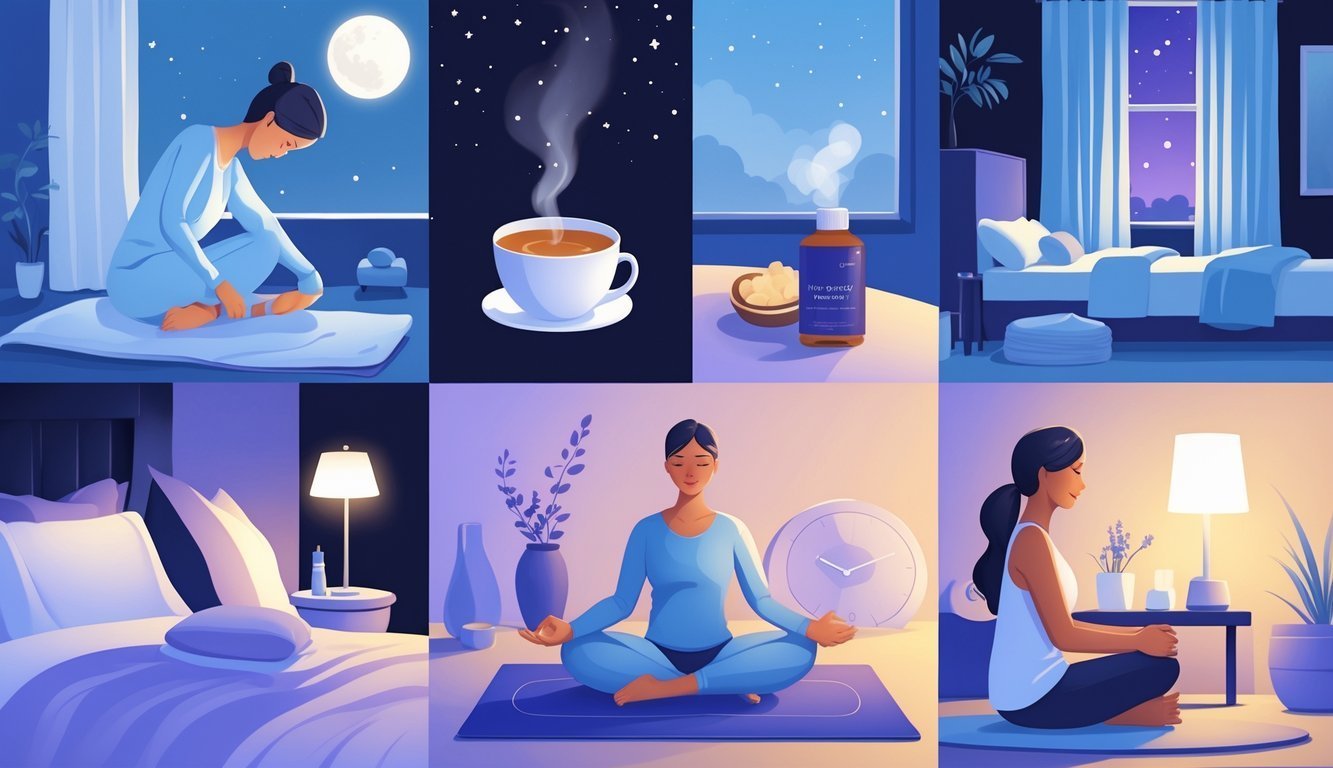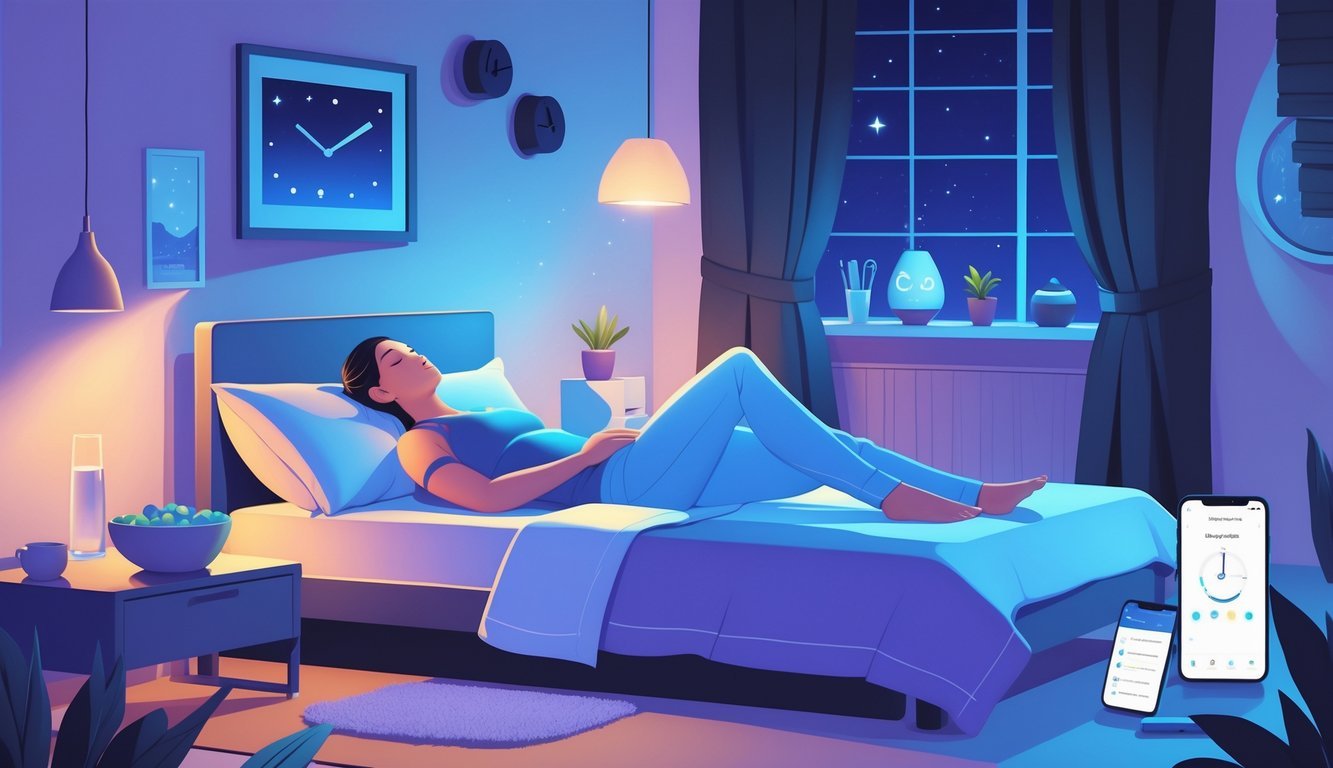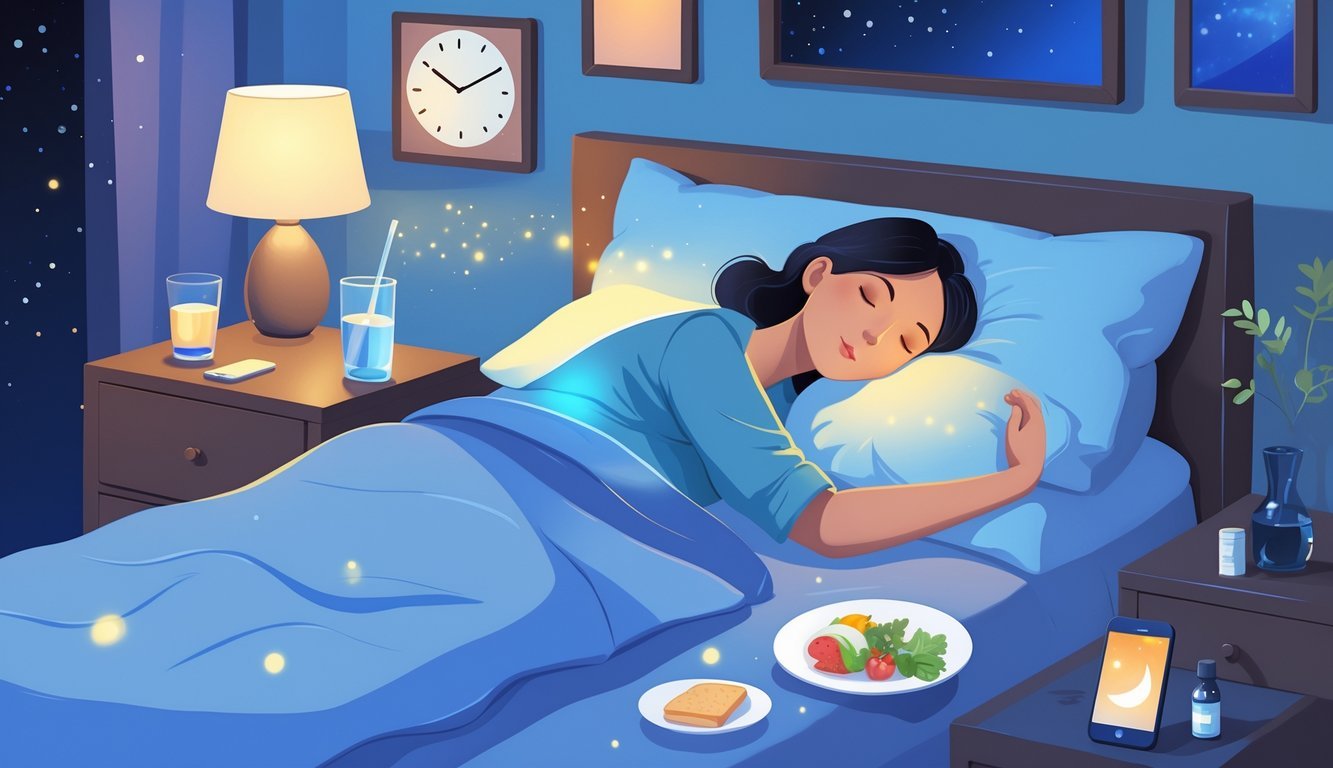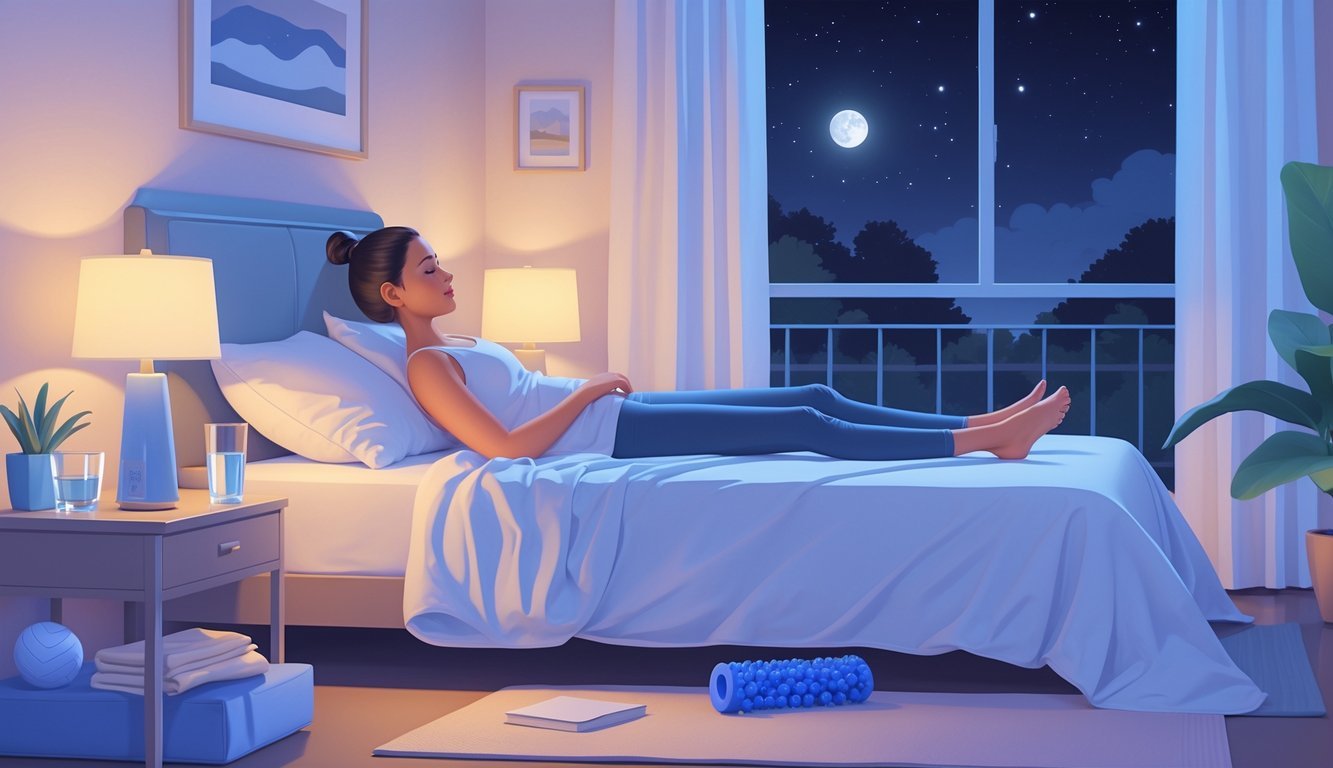Physical Address
304 North Cardinal St.
Dorchester Center, MA 02124
Physical Address
304 North Cardinal St.
Dorchester Center, MA 02124
Establishing a calming bedtime routine improves sleep quality and accelerates muscle recovery. Simple habits like gentle stretching, mindful meditation, and a cozy sleep environment enhance rest.

If you’re hoping to get better sleep and help your muscles recover faster, the right nighttime rituals can really make a difference. Habits that calm your body and mind before bed set you up for deeper rest and stronger muscles.
Even simple things, like taking a warm bath, doing a few gentle stretches, or sipping herbal tea, can help more than you might expect.
Your body repairs muscle and restores energy during deep sleep.
Setting up a calm, steady routine boosts how well you recover.
Try to avoid heavy workouts right before bed, and cut down on screen time.
These small changes can help you fall asleep faster and get more restful shut-eye.
With these seven bedtime rituals, you’ll wind down both body and mind.
That way, you can sleep better and wake up feeling stronger.

Good sleep and muscle recovery start with habits that help you unwind and get your space ready for rest.
Stick to a sleep schedule, move gently, calm your thoughts, and make your bedroom cozy—these steps all help you fall into deeper, better sleep.
Going to bed and waking up at the same time daily teaches your body when it’s time to sleep.
This steady schedule really improves sleep quality and muscle recovery overnight.
Keep your bedtime routine simple and relaxing.
Read a book, soak in a warm bath, or enjoy a small cup of herbal tea.
Try to avoid screens for at least 30 minutes before bed—the light can mess with your brain’s sleep signals.
A regular routine boosts your sleep hygiene.
It tells your body it’s time to wind down and can calm worries that keep you up.
Light stretching or yoga before bed loosens tight muscles and eases tension from your day.
These gentle moves get your blood flowing and help muscles recover.
Focus on slow, controlled stretches or easy yoga poses for your hips, back, and shoulders.
Skip intense exercise close to bedtime, since it can keep you awake.
Try poses like child’s pose or a simple seated forward bend.
Movements like these can relax your body and clear your mind for a good night’s sleep.
Meditation and deep breathing quiet your mind and lower anxiety.
When your thoughts slow down, falling asleep just gets easier.
Simple breathing exercises—like inhaling for four seconds and exhaling for six—can lower your heart rate.
This tells your nervous system it’s safe to relax, which supports mental health and better sleep quality.
Mindfulness meditation helps you let go of the day’s worries.
By focusing on the present, you reduce stress and clear your head, which helps you recover better.
Your bedroom setup matters more than you might think.
A comfy mattress and supportive pillows help you avoid aches and let your muscles heal.
Hang blackout curtains to block out light and keep things dark.
Use a noise machine or white noise app to cover up sounds that might wake you.
Keep your room cool—around 65°F (18°C) is ideal for sleep.
Fresh sheets and less clutter make your space feel calm, which helps you stay in deep sleep longer.

Getting better sleep does wonders for your body’s recovery and your overall well-being.
If you want to sleep better, try managing your screen time, fueling your body wisely, and calming your mind before bed.
These small changes help balance your internal clock and lead to deeper rest.
Using devices before bed can really mess with your sleep.
Blue light from screens lowers melatonin, which tells your body it’s time to rest.
Try to avoid phones, tablets, or computers at least 30 to 60 minutes before bed.
Leave devices outside your bedroom if you can.
If you absolutely need to use a screen, switch on a blue light filter or night mode.
What you eat and drink shapes your sleep quality and muscle recovery.
Avoid alcohol close to bedtime—it disrupts sleep and dehydrates you.
Skip heavy or spicy meals late at night, since they can cause reflux and keep you up.
Magnesium supplements can relax your muscles and help you sleep better.
Stay hydrated during the day, but cut down on drinks before bed so you don’t wake up at night.
A calm mind gets your body ready for deep sleep and healing.
Read a physical book under soft light to relax your brain—no blue light needed.
Practicing gratitude before bed steers your focus away from stress.
Just a few minutes thinking about what you’re thankful for can slow your heart rate and help you sleep more soundly.

Your choices before bed really do affect your sleep and muscle recovery.
Even small changes at night can help you rest and heal better.
Try stretching or light foam rolling to ease muscle tension.
A warm bath or shower relaxes muscles, and a small protein snack can help with repair while you sleep.
A steady routine tells your body it’s time to sleep.
That helps you fall asleep faster and stay asleep longer.
Limiting screen time before bed also quiets your brain so you can drift off.
Write down your thoughts to clear your mind.
Read a calming book to distract yourself.
Practice deep breathing or gentle muscle relaxation to ease tension.
Set a regular bedtime and wake time, even on weekends.
Avoid caffeine and heavy meals late at night.
Turn off devices at least an hour before bed so your brain can wind down.
The ‘5 B’s’ stand for Bedtime, Books, Bathroom, Beverage, and Breathing.
Go to bed at the same time, read a bit, use the bathroom, sip a light drink, and practice deep breaths—all these steps help you get restful sleep.
Try planning your next day a bit earlier—it honestly helps reduce stress.
I’ve found that light stretching or a bit of gentle yoga can really ease your body before bed.
Set a calming environment, too.
Dimming the lights and turning down the noise usually makes it way easier to fall asleep and get better rest.